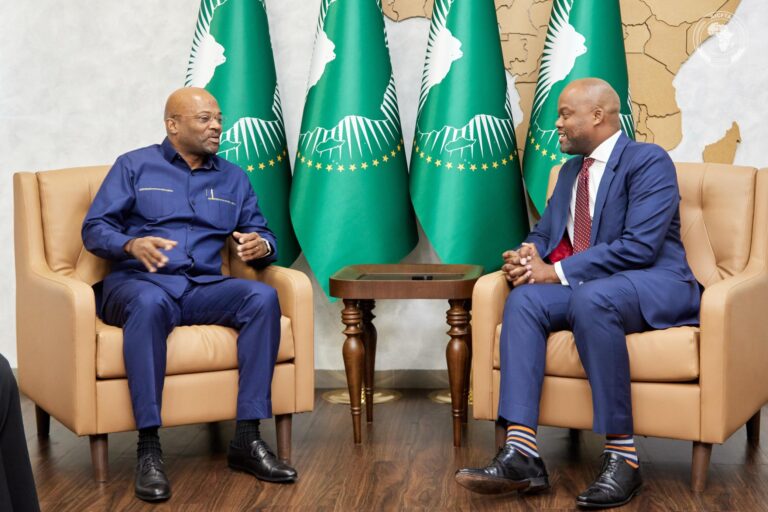Africa should promote supportive policies and infrastructure development to attract green investment and boost trade through the African Continental Free Trade Area (AfCFTA), Economic Commission for Africa (ECA), Acting Executive Secretary, Antonio Pedro, has urged.
“To reap the AfCFTA opportunities we must address Africa’s infrastructure gap,” Mr Pedro told participants at the Africa Regional Session of the 12th Annual Investment Meeting, adding that, “To attract sustainable cross-border investments to Africa, hard and soft infrastructure must be addressed.” The theme of the Africa Regional Session was the “The AfCFTA Investment Protocol – An Investment Paradigm Shift for Africa” which set out to discuss the role of the AfCFTA and its Investment Protocol to create a new framework for attracting sustainable and productive investments to the continent and the investment opportunities that are arising as a result of that.
It is not because of the lack of blueprints, Africa has not achieved structural transformation, but rather the lack of policy space to pursue the agenda, Mr. Pedro said. He called on African countries to support the implementation of the AfCFTA with “harmonized continental, regional and national trade and industrial policies that will help move from ideas into action”.
The AfCFTA entered into force in 2019 and constitutes a single continental market with a population of about 1.3 billion people and a combined GDP of approximately US$ 2.5 trillion. At its full realization, the AfCFTA with the mandate of eliminating trade barriers, will be the largest free trade area in the world bringing together the 54 countries.
The AfCFTA and the Programme for Infrastructure Development in Africa (PIDA) of the African Union will help deepen regional integration and build regional value chains Mr. Pedro noted, highlighting the importance of building beyond Africa’s comparative advantage of resource endowment and low costs.
“We need to invest in science, technology and innovation (STI) to stay competitive in the long run and build Regional Value Chains (RVCs) that can generate more value added to increase the market share of African businesses,” he said, adding that Africa can leverage its natural resources to create sustainable regional value chains such as the battery and electric vehicles value chain in the Democratic Republic of Congo (DRC) and Zambia.
“Green industries are important for Africa’s competitiveness in future net-zero carbon markets”, said Mr. Pedro. He highlighted that an African Carbon Market presents a viable structural approach to attract sustainable investment opportunities that can drive the continent’s green growth ambition.
Speaking at the same Africa Regional Focus Session, H.E. Mariam Yalwaji Katagum, Minister of State for Industry, Trade and Investment of Nigeria emphasized the need to reinvigorate national trade institutions to ensure the inclusive and sustainable implementation of the AfCFTA. “For the AfCFTA to become an active instrument of change, finance is needed to build capacity of the private sector and build the necessary infrastructure to connect trade paths on the continent,” the Minister said.
Anthony Kamole, Managing Director, of the DRC National Agency for the Promotion of Investments (ANAPI), said his agency was working with the government to identify legal frameworks to ensure DRC’s industries were leveled with other African countries regarding standardization of industries, tax systems, and rules for businesses establishment. This was part of efforts to foster private sector growth and leverage AfCFTA opportunities.
For her part, AfCFTA Secretariat Director, Emily Mburu, added that the potential of the AfCFTA, could be unlocked by freeing the movement of people across the continent to upgrade industries and leverage on the diversification of other African countries.
Initiatives to ensure the successful implementation of the AfCFTA were highlighted such as the Pan-African Payment and Settlement System – a payment system that will enable cross-border traders to trade in local currencies – and the AfCFTA Adjustment Fund to compensate for tariff revenue losses and finance diversification opportunities under the AfCFTA.
Abdoulaye Balde, Managing Director of APIX, said investments in sustainable energy will enable countries to diversify energy resources and reduce costs of production. This can unlock industries’ modernization and improve the connection of infrastructure- and transportation across the continent.
“Training centers targeting the youth are being established in Senegal to prepare for the quality human resources demand that will emerge from enhanced intra-African trade under the AfCFTA,” Mr. Balde said.
Source: New Business Ethiopia


